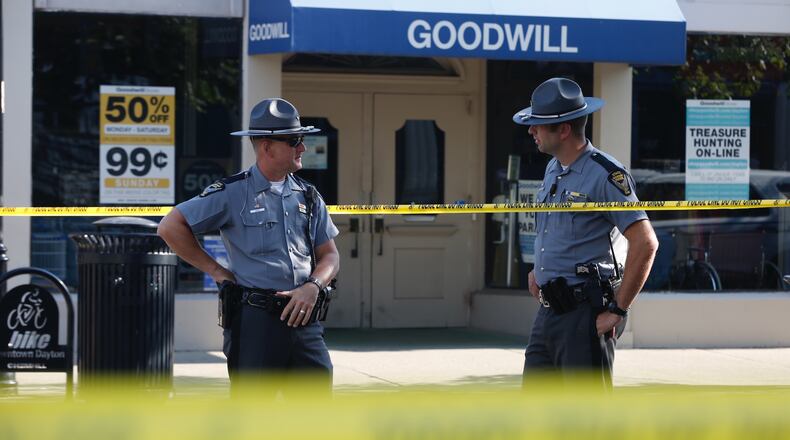MORE: Dayton Shooting: 9 victims killed in Oregon District identified
Parents should be truthful, but not go into more detail than the child is interested in or can handle, according to a guide sent out by Dayton Children’s.
A young child may accept the news at face value without any connection to their life. However, by the time kids reach the age of 7 or 8, they begin to distinguish between fact and fiction, and what they watch on TV can seem all too real.
Unless your child is younger than 5 years old, you don’t have to stop them from watching the news, Ramey said, and parents can use what they see there to provoke discussion. Encourage them to talk openly about what scares them and show a willingness to listen, he said.
“Most often, kids are going to ask - ‘Am I safe?’ says Ramey. “And that can be a tough one for parents to answer.”
MORE: Hotlines, meeting site set for families of victims
Dayton Children’s gave the following tips for parents to engage in conversation today and this week with their kids:
• Know which sources your kids turn to for news and information - TV or online.
• Ask your child what they’ve already heard. It’s best that your child hears about it from you, as opposed to another child or in the media but many times that can’t be avoided.
• In general, it is best to share the basic information. Be straightforward and direct so that your child knows what’s going on and avoid graphic or unnecessary details.Be aware that repetitive graphic images and sounds may appear in various forms of media and therefore try to limit, if not eliminate, those exposures.
• Discuss current events with your kids on a regular basis. It’s important to help them think through stories they hear about. Ask questions: What do you think about these events? How do you think these things happen? Such questions also encourage conversation about non-news topics.
• Put news stories in proper context. Showing that certain events are isolated or explaining how one event relates to another helps kids make better sense of what they hear.
• Watch the news with your kids, if age appropriate, to filter stories together.
• Don’t pressure your child to talk. Your well-meaning intentions may be viewed by some kids, particularly teens, as an interrogation. Show interest and concern, but not pressure.
About the Author
